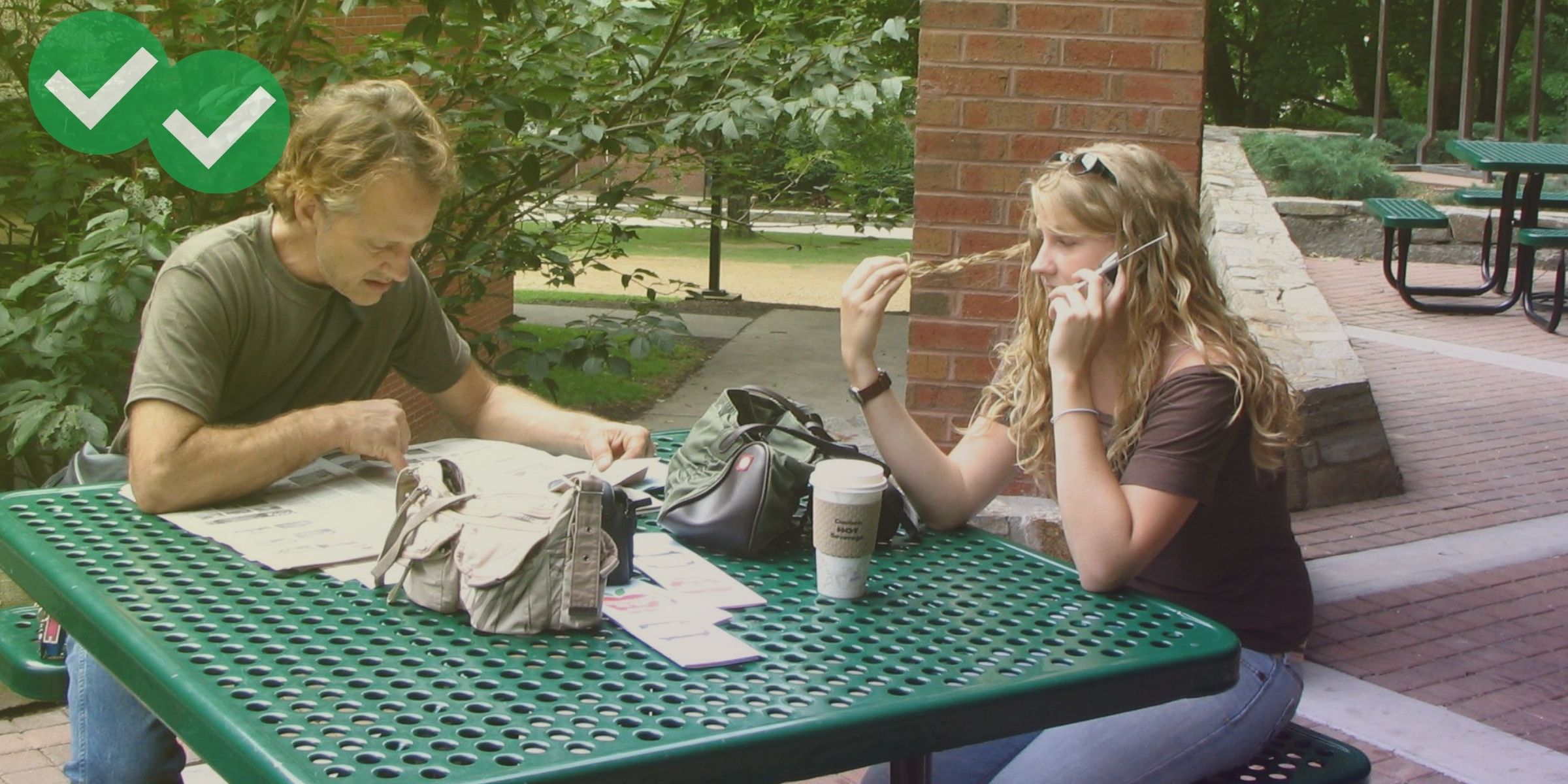
In the TOEFL writing section, you’ll see two types of questions: an integrated task and an independent task, which work together to test your ability to communicate through writing in an academic environment. This is the last section of the test, and it will take about an hour to complete. In this post, we’ll take a look at what you can expect to see in each kind of task, as well as what kind of writing skills you’ll need to ace them!
Table of Contents
TOEFL Writing Task 1: Integrated
TOEFL Writing Task 2: Independent
TOEFL Writing Tips
TOEFL Writing Scores
Final Thoughts
The Integrated Task in TOEFL Writing
The integrated writing task will require you to read a short passage, listen to a lecture, and then write an essay that uses information from both of these sources. The integrated writing task is one of the more interesting parts of the TOEFL because it gives you a chance to draw together information from multiple sources and synthesize it into one clear argument.
It’s a more difficult task than the independent essay in most cases, but it’s also more engaging. The independent essay topics are necessarily simple—otherwise, you wouldn’t have time to answer the question fully. But with the integrated tasks, you have more information to work with, so you can deal with slightly more complex, academic topics. (For examples, see Lucas’s list of TOEFL Writing topics.
The integrated task may be on a wide variety of topics, including business, fine arts, history, anthropology, and so on. As in the reading section, you will be asked to write on an academic topic. In other words, almost everything that could be taught in an entry-level course is fair game for the reading passage and the listening passage, although you won’t encounter the hard sciences, math, and so on, since these would be unnecessarily difficult to write about.
Integrated Prompts
Before you write your integrated essay, you’ll read a paragraph and listen to a lecture excerpt. Both of them will deal with the same topic, although they will likely offer different opinions or interpretations of it. You’ll generally have about 3 minutes to read the topic, and the lecture will be about the same length.
Needless to say, it will be very difficult to keep all that information straight in your head without taking notes. You will be able to view the reading passage while writing your essay, but if you have time in the three-minute reading period, you still should consider beginning to write down the key points from it for easy reference.
Responding to Integrated Tasks
In the independent essay, you are asked to give your opinion on an issue. That’s not the case in the integrated task. As much as possible, keep your thoughts and opinions out of it; the questions are generally phrased in a way that encourages you to compare the resources you were given with little to no consideration for what you think. Any time you spend writing about your opinion is wasted time. Focus on the material that you heard in the lecture.
If you look at the official ETS score guide for TOEFL Integrated Writing, you may notice this fact: “…typically an effective response would be 150-225 words.” That’s not much. It’s about as much as the first two paragraphs of this article combined. So from the beginning, set out with an idea of what you want to say and where you want to end up, and when structuring your essay, take the most direct route to get you there.
Integrated Writing Practice
The Magoosh TOEFL Blog offers two free TOEFL Integrated Writing practice tasks with model answers. One is in our Complete TOEFL Writing Task 1 Guide, and the other is in our Guide to TOEFL Writing Samples.
In addition, there are, naturally, several sample integrated writing assignments in the Official Guide. But if you don’t have the guide or want more examples, you can watch our Magoosh TOEFL Writing lesson videos, and subscribe to Magoosh TOEFL for additional Integrated Writing prctice questions.
Reading about a variety of topics in your free time will help prepare you to write about whatever topic the integrated task may throw at you. Taking a mock test is a great way to prepare for the test format of the integrated task, as well, because test takers may be surprised by the experience of encountering so much information all at once!
The Independent Task in TOEFL Writing
The independent writing task will be on a topic similar to the topics in speaking task #2—that is, it will ask you to use personal experience to explain an opinion that you have. Unlike the integrated task, these topics aren’t necessarily about issues you’ll encounter in an academic setting. Instead, the TOEFL iBT will ask you to elaborate on a more general topic.
The 4th edition of the TOEFL Official Guide includes a fifteen-page list of topics from old TOEFL tests, so if you can get your hands on a copy of that book, that’s the best way to ensure that you’re familiar with the topics you may write about in the independent section. In case you can’t, here are a few examples:
– Some would say it is more important to have an enjoyable job than to have a job with a high salary. Do you feel this is true or not true? Explain your thoughts using examples.
– Your family and friends are encouraging you to buy a new car. What are some benefits and downsides of purchasing a brand new vehicle? Explain your thoughts using examples.
– What is your favorite place to visit near your home? Explain your thoughts using examples.
– Many workers change jobs a few times in their career. However, several workers instead do the same type of work throughout their career. Of these two career paths, which is a better option? In your essay, include supporting details.
Responding to Independent Prompts
Probably 80% of independent essay arguments come from personal experience because it’s your own experiences that typically shape your opinions. You can draw on your friends’ stories and your family, in addition to those things you’ve personally done or seen–as long as you include specific details. Personal experience arguments are particularly useful in questions that deal with education, raising children, and general lifestyle like questions like this (and like the questions in the section above):
– Your family and friends are encouraging you to buy a new car. What are some benefits and downsides of purchasing a brand new vehicle? Explain your thoughts using examples.
Selecting Examples: Famous People
You can also draw examples from well-known stories and personalities, whether they be historical or fictional. If you choose for a fictional or literary example, make it clear that although it’s fictional, it demonstrates something applicable to real life. This is a great tactic for questions of national interest and ones like these:
– If you could choose any place to visit in the world, where would you live? Explain your thoughts using examples.
– Who is your favorite singer or singing group? Why? Use specific reasons and details to support your choice.
Selecting Examples: Knowledge of the Subject
You don’t need to have any prior knowledge to answer your TOEFL essay questions, but if you do know something about the topic you’re given, you may want to draw on that knowledge. This is likely to be a more successful tactic than personal experiences or famous events when your question deals with a social or political issue like one of these:
– Do you agree or disagree with the following statement? Modern mass media has helped people to be better informed than before. Use specific reasons and examples to support your answer.
– Extracurricular activities (such as sports, band, debate, or a hobby club) can enhance a student’s education. What is an extracurricular activity that you would recommend to students? Why? Use reasons and specific examples to support your choice.
Tips for Acing TOEFL Writing
Many people try to include too much in their essays. Although it’s tempting to explore gray areas and expand on the (admittedly, pretty boring) prompt, most essays are only 200 – 400 words, and there’s just not the time for that kind of development.
It’s important to know that the best use of your time and space is to choose one position and to focus on it the whole time. To do this, ensure that you immediately present a thesis statement in the first paragraph. The introductory paragraph doesn’t have to be complicated or fancy, but it should summarize your main points.
Each of your paragraphs should elaborate on these important points that support your thesis statement. You’ll want to make sure that you make specific points–either based on the prompts for the integrated task or based on specific, real-world examples (and specific reasons) for the independent task.
Using Examples Well
Of course, simply having a good example isn’t enough. You have to use it well in your writing. That means connecting the concrete example to the more abstract ideas—your opinion or the reasons for that opinion. Say, for instance, I answer the following question about technology:
It could be argued that technology makes our lives easier and simpler. But there are certainly people who feel life has become more complicated due to modern inventions. Which opinion do you agree with? In your essay, include supporting details.
Here’s my main idea:
Technology has simplified life and made things easier.
And then I give you a reason why I think that:
It has made long-distance communication cheaper more accessible.
Now, I can easily bring up a specific example to support that reason:
For instance, I live many hundreds of miles away from my parents, but I can talk to them by video chat every week as part of my Internet service.
Connecting Your Examples
All of that is great, but I need to make the connections between the parts. The most important thing I need to do is explain my example. Here are a couple of sentences that would help:
The technology behind the video chat is very new. Twenty years ago, before we had that technology, I wouldn’t have been able to see my parents’ faces so often. That change in technology has allowed me to easily communicate better with people I love even though I’m very far away.
Notice how this makes a clear connection between the specific example of video chat and the general idea of technological changes improving my life and making it easier.
And of course, transition words (such as “for example,” and “for instance”) and referencing your previous sentences (such as “That change in technology”) are very, very important for writing smoothly. Be sure to link your thoughts together!
For more on how to make sure you stay on topic, check out our Magoosh TOEFL writing lesson videos!
Scoring
The writing section is scored by a combination of computer and human raters. You will receive a total score of 0-30 for TOEFL writing. If they give you very different scores, a third-grader will review the essay to decide your final score. A high-scoring essay will be well-organized, will give clear arguments and examples to support those arguments, and will include all of the important information from the given sources (on the integrated task, of course).
To get a high score, you need to have a clear main point, and everything in your essay should contribute in some way to that point. As in the speaking section, a few minor language errors are not a major problem—this section is about communicating fully, so if your errors don’t interfere with communication and are not very many, then you probably don’t have much to worry about.
For more resources on TOEFL Writing scores, including ways to self-assess your TOEFL scores and ways to get feedback from others, see Magoosh’s collection of TOEFL Writing score links.
TOEFL Writing Takeaways
Sitting down to write two full-length essays on test day may be a new experience, but with some practice, it becomes a lot easier! As you prepare for your exam, make sure to keep in mind the demands of the integrated task compared to the independent task that we’ve outlined above. However, some factors (like great language use, mastery of idioms, and transitions) will boost your score in both sections—the more you read and write in English, the easier it will be to master this section.
At the end of the day, a high score on TOEFL Writing comes from a combination of mastery of the tasks and mastery of the language. As you study for the test, focus on both! By knowing exactly what you’ll face on the TOEFL exam and by polishing your language skills, you’ll be in the best possible position to achieve your goals. Good luck!





